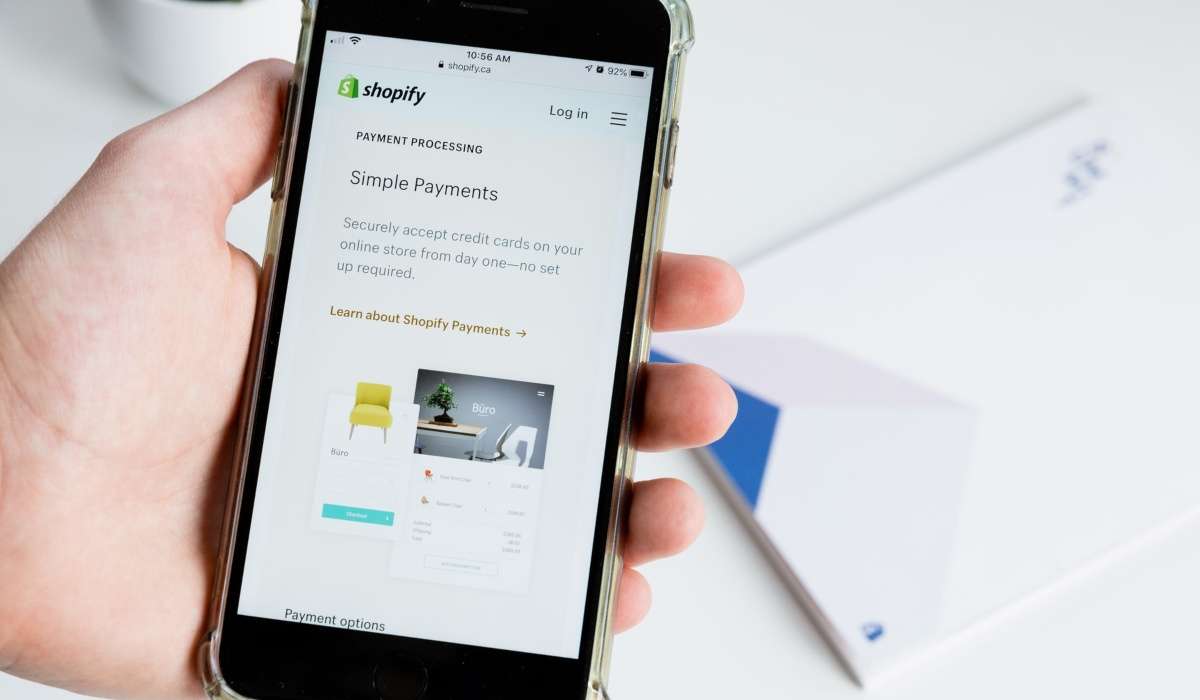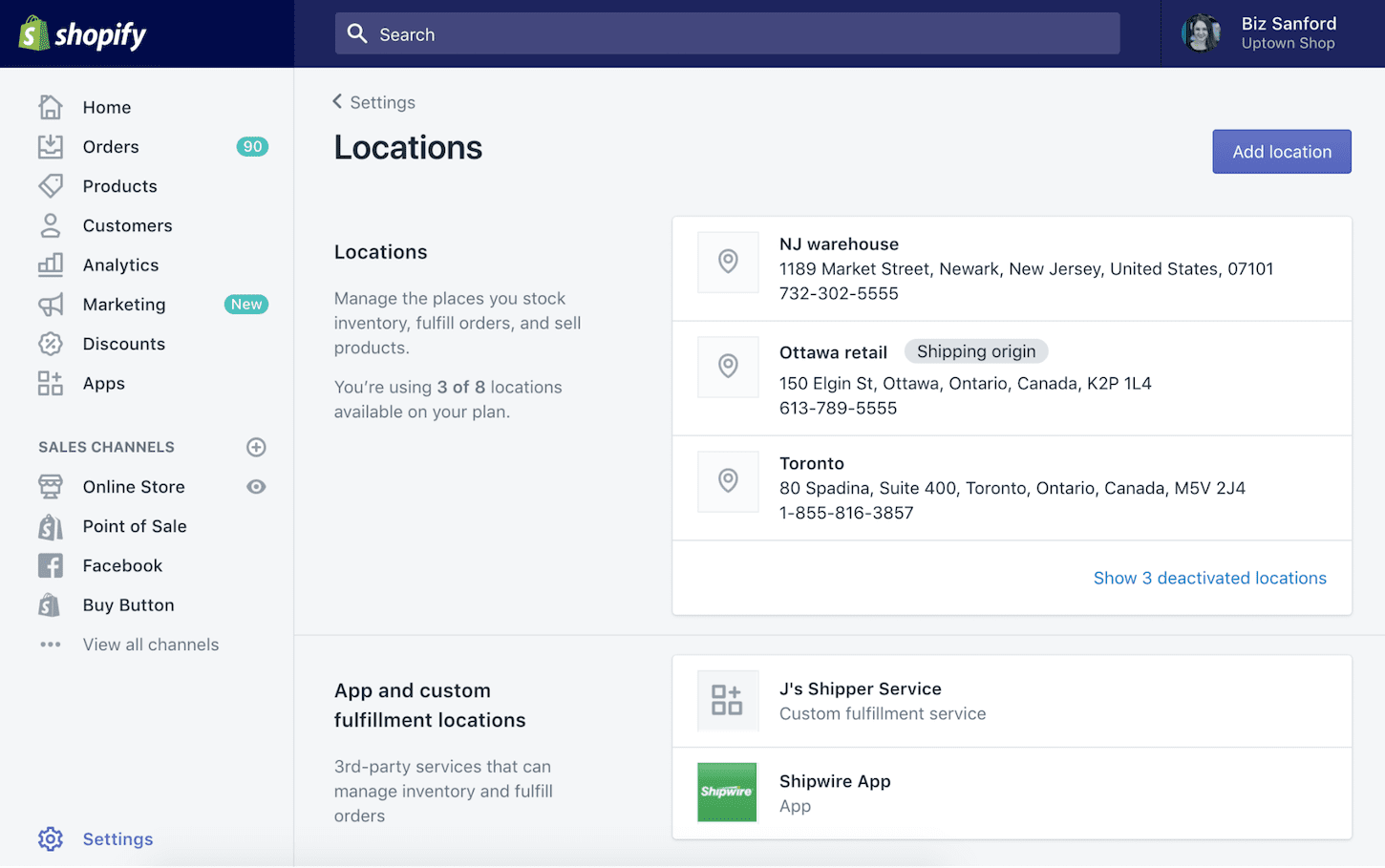Is Shopify "Big" Enough for You?

August 29, 2019

If you want to win at eCommerce, you need to focus on managing your business, not your technology. When your tech is overly complicated, you get distracted from focusing on what really matters - your customers and your competition. Shopify's ease-of-use has made it one of the world's most popular eCommerce platforms around but does that simplicity come at the expense of power?
Today, the top eCommerce platforms are WooCommerce, Shopify, and Magento - together, these three alternatives have most of the market. Each of these platforms offers a very different value proposition, however.
Of the three, Magento's paid edition is the most expensive. Businesses will need to spend well into the 5-figures (or even 6-figures) just to get started. Magento does offer a free open source "Community Edition" but this has a significantly reduced feature set. Many important merchandising, payment, and security options are only found in the "Enterprise Edition."
WooCommerce is the most popular alternative due in large part to the fact that it's free. Built on the popular Wordpress blogging and website platform, it offers a "bolt on" option for those with existing Wordpress sites. Although initially easy to set up, however, it can be complicated and time-consuming to maintain. Nothing will ruin your day faster than a data breach, especially when sensitive consumer data is at stake, and with WooCommerce you'll need some expertise and time to ensure that your store continues to remain locked and secure. While many brands successfully and securely run the platform, it does require some commitment and knowledge to get it right.
To many, Shopify is the alternative that represents the best of both worlds. While not free, new store owners can sign up for as little as $29 / month (and free trials are also available). Shopify features an easy to navigate dashboard, built-in payment processing, integrated shipping solutions, and an array of ready-made themes. Because of this, most companies can get up and running very quickly.
With Shopify, Hosted Means Less Headaches
What makes this platform so easy is the company's SAAS (Software as a Service) model. Shopify handles many of the tasks that you would otherwise need to take on such as software installations and upgrades, security, integration with other selling channels, payments, shipping, and much more. Everything is accessible from one management dashboard (pictured here) that also provides you with all the data you need to optimize your performance.

The Platform is Flexible and Extensible
In addition to thousands of pre-built themes that you can choose from, Shopify's built-in App Store allows you to add all sorts of functionality to your site. This includes tools that add new "front office" marketing capabilities like smart coupons, exit-intent popups, and heat mapping. Other add-ons can help you in the "back office" with enhancements to your inventory management, customer service, and accounting systems integration.
If you have a physical store, Shopify also offers a number of easy-to-use Point-of-Sale (POS) solutions that will connect directly with your digital store to keep pricing up to date, keep inventory in sync, and calculate sales tax based on your physical location.
If you're an Amazon seller, Shopify can also seamlessly sync with your Amazon storefront and you can even use your Amazon FBA inventory as a fulfillment source for your web store orders.
Shopify Continues to Evolve & Improve
As a leader in this space, Shopify is continually innovating their platform with new functionality and features. Want easy checkout options like Apple Pay, Google Pay, and Amazon Pay? They're built right in. Want to use augmented reality (AR) to make the sale? It's available too!
In a response to Amazon's FBA, Shopify is even building their own "fulfillment network." Like Amazon, Shopify will charge their merchants for warehouse space as well as pick, pack, and ship services essentially acting as 3PL for their customers. Dashboard integration will mean that merchants can always be in-touch with inventory levels, shipment status, and more.
Customization Can Be Challenging, However
If the infinitely customizable WooCommerce is the Google Android of eCommerce, Shopify is like the iPhone. It's beautifully designed and easy to use but in many cases, you're just going to have to accept Shopify's choices because they can't always be changed. This can be frustrating for brands that want to control every aspect of the experience.
Perhaps the most serious example of this lack of flexibility is checkout customization. Shopify has built a multi-step checkout process that can only be lightly customized (colors and logo) but if you want to customize this further (for example with a one-page checkout), you have to basically replace your Shopify checkout with a third party hosted checkout. These can be very expensive and can also introduce significant risk and complexity relative to Shopify's own built-in solution.
In addition to this limitation, Shopify also has some proprietary elements that can make the learning curve more difficult for those used to other platforms. Shopify's "Liquid" template language, which is used to develop and maintain site content, is one of these elements. Liquid works with HTML to allow developers to customize outputs based on data pulled from the store's database. While you likely won't be developing these themes as a new merchant, you will almost certainly find yourself customizing one and some understanding of Liquid will be necessary.
Growing Stores Can Upgrade to Shopify Plus
For merchants that outgrow Shopify's entry-level offerings, Shopify Plus should be "big" enough for just about anyone. Even huge global companies including Unilever, Nestle, and Pepsico are using it. Compared to Shopify, the minimum price tag is much higher, however - roughly $2,000 per month. That said, Plus can handle many more transactions for busy stores (10,000 per minute), provides lower credit card transaction fees, and more marketing automation features. Shopify Plus also allows for more customization including (importantly) customization of the checkout process,
Want to try Shopify for yourself? The company lets you get behind the wheel with a 14 day free trial. If you're looking for some advice to help you get started, just reach out to us for a free 30-minute consultation. Bold is a Shopify Partner and we're here to help!
